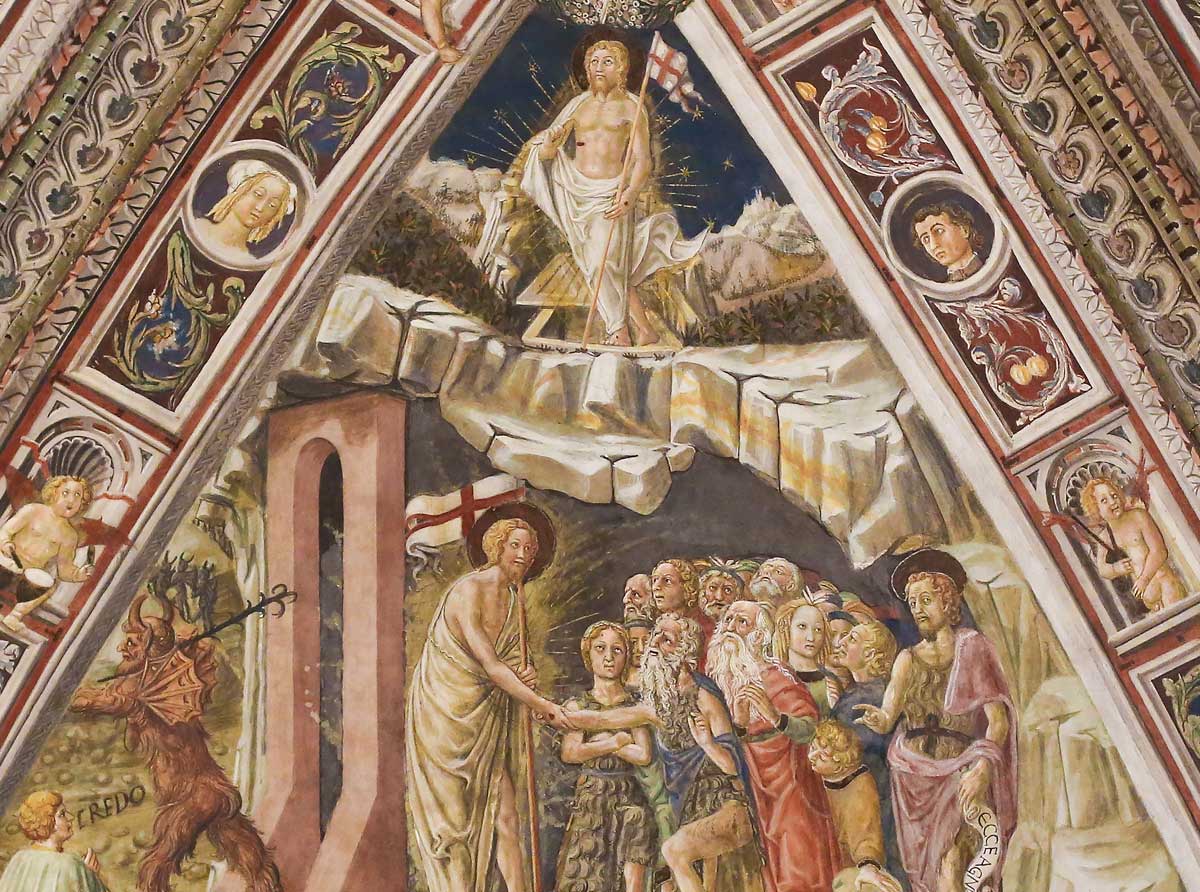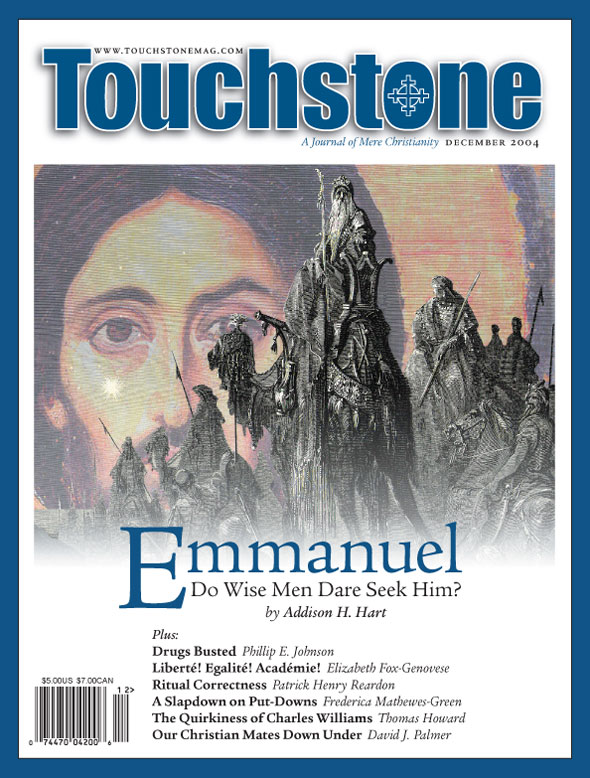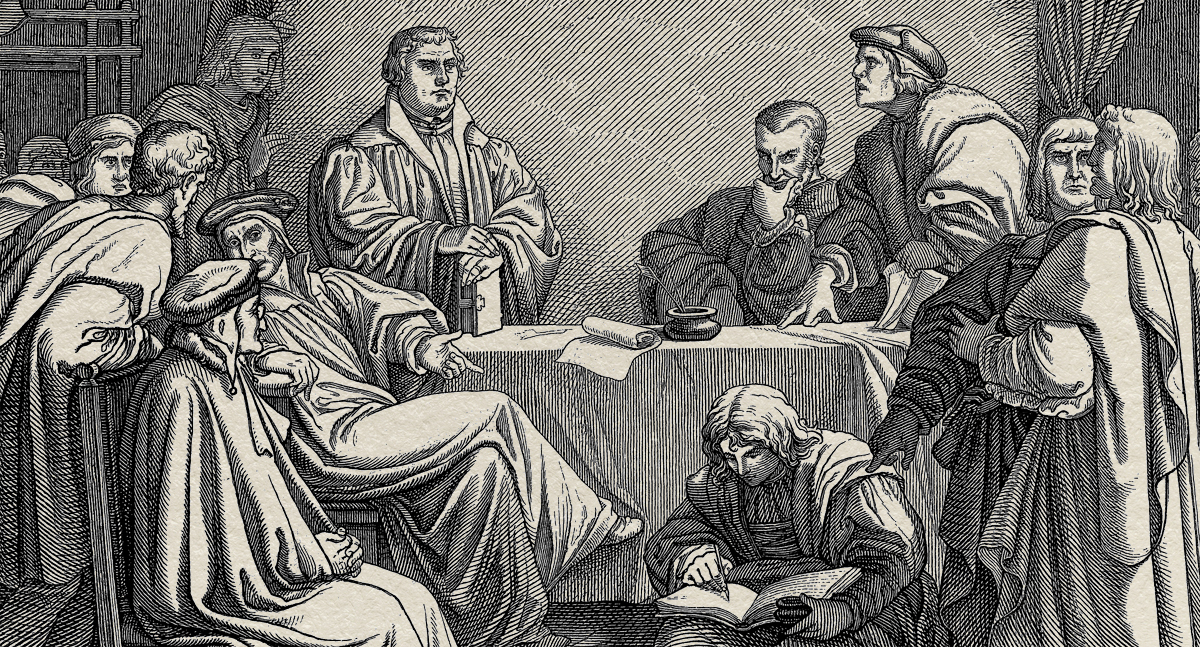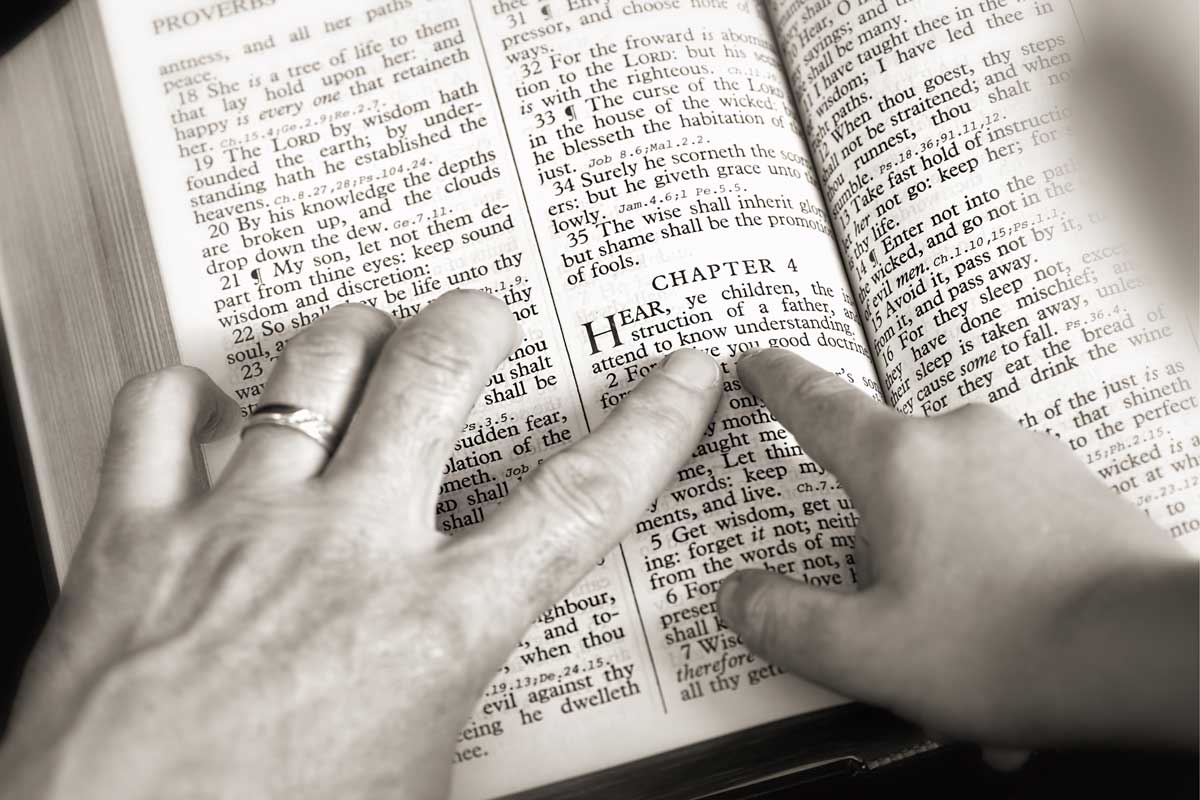View
Liberté! Egalité! Académie!
Elizabeth Fox-Genovese on the Recovery of Academic Freedom
During what was perhaps the worst commencement address I have ever heard, the speaker, who enjoys considerable academic distinction among his colleagues and the general public, enthusiastically called upon the graduates to “invent yourselves.” My first gasp of horror at what, as we all know, has become something of a platitude, was for the parents and grandparents in the audience. These young people were cavalierly to cast aside their pasts, together with the very people who had sacrificed so much to bring them to this pinnacle of achievement? Then as now, the mere possibility seemed appalling.
Mind you, the speaker did not see it that way, and parents and grandparents probably never occurred to him. He did not intend to slight them—he simply did not see them as relevant—probably did not see them, in the full sense of recognizing them as persons like himself, at all. But his primary blindness derived from his sense of their irrelevance, for relevance lay at the heart of his thought, as it does for so many today. The idea of our indebtedness to the past has little appeal, and many no longer consider it at all.
Worse, in the measure that some do consider the possible bearing of the past on the present, they are likely to rewrite it to conform to contemporary sensibilities. There are many problems with this “translation,” not the least being its tendency to erase whatever evidence we can glean of the genuine differences between the sensibilities and beliefs of the past and our own.

True Enough
Consider, for example, the social position and treatment of women. According to prevailing standards, the situation of women in many—if not all—previous societies left much to be desired. Feminists have frequently insisted that throughout most of history women have been dominated by men, deprived of their natural rights, and, more often than not, subjected to outright abuse. And, up to a point, the feminist charges are true—or contain a large enough dose of truth to warrant serious consideration.
Pope John Paul II has spoken movingly and insistently of the injustice too many women have suffered, and he has no less insistently called for its redress. Time and again, he has called for the restoration of women’s dignity, by which he means the honor and respect accorded to them—a widespread recognition of the importance of their contributions to the health and vitality of society. And he has never flinched from demanding a vast expansion in their “rights” and the social opportunities open to them, beginning with an education to fit them for countless occupations from which they have previously been excluded.
Feminists, however, have been less than enthusiastic about the pope’s vision of dignity and justice for women, primarily because he views women as women, which means he views them as different from men. How dare the pope defend women’s exclusion from the priesthood? How dare he claim that their primary and greatest vocation is motherhood—their capacity to bear and nurture children, which in his view also includes a special predisposition to nurture life in general, including nature and the environment?
Feminists insist that women’s true dignity requires that they be equal in all ways to men and differ from them in none. This reasoning provides the main justification for abortion, which offers the one way to redress nature’s bigotry in endowing women with the biological liability of a potential pregnancy and, consequently, depriving them of sexual equality with men.
Feminist claims about the oppressive inequality between women and men present many problems, not least a massive misunderstanding of history and an angry rejection of its possible bearing upon the present. For radical feminists, justice requires that we wipe the slate clean. From this perspective, it becomes impossible to imagine that any women at any other moment in time might have enjoyed respect and found satisfaction in their lives.
Nor does the perspective invite us to understand that the most difficult conditions may have weighed equally—if somewhat differently—on women and men. In a short article, I cannot possibly do justice to the complexities, but the essential point is clear: Men and women together have survived—or failed to survive—the harsh physical conditions and forms of social domination that have characterized much of history and assuredly exceed in difficulty anything that most of us today can even imagine. Together, they have also shared joy, reared children, built communities, and, for the most privileged, participated in some aspects of political power.
Equality’s Senses
Equality in our sense was not the issue. Or, to borrow loosely from Tina Turner, “What’s equality got to do with it?”
For most of human history, our modern notion of equality did not exist, although Christianity fostered an ideal of the equality of souls in the eyes of God. But the equality of being marked by Original Sin and blessed with the hope of salvation is not the equality of feminist campaigns. And most feminists do not even suspect that equality in the sense of the equal rights of individuals is the child of a particular historical moment—not a universal feature of human experience.
Some have been known to argue that we should restore a past free of spurious and disruptive claims to equality—sexual or other. Some even buttress this position with dubious claims that subordinate peoples, including women and social classes, have been happy in their subordination, provided, of course, that their beneficent superiors treated them well. Unfortunately, there is a danger that those who hold such views might take my remarks as support for their case. They would be wrong—as wrong as those who would view the past as nothing but an unalleviated record of the oppression and exploitation of women.
I do not advocate returning women to the bedroom and the kitchen or excluding them from the many public roles in which they are now serving to the great benefit of our society. Nor would I suggest that medieval peasants, early nineteenth-century factory workers or servants, Roman slaves, or southern sharecroppers were happy in their condition.
But all social groups in which women and men have formed unions and reared children have, almost by definition, enjoyed at least a modicum of the great virtues: faith, hope, and charity. And the odds are overwhelming that, more often than not, the men and women who came together to form families viewed themselves as partners in a shared undertaking—a partnership in which each had distinct privileges, obligations, and responsibilities.
Told in this fashion, the history of women’s experience could press the bounds of acceptable academic discourse on many campuses, but, in fairness, on many campuses this version of women’s history would probably not be censored outright—just marginalized or ignored. The problems would arise with more sensitive issues, including the special value of heterosexual marriage, women’s special relations to children, the justification of men’s primary roles in warfare, and the sexual division of labor. On many campuses, especially the more elite, prevailing standards may curtail opinions that deviate from “what we believe,” when “we” means “people like us.”
What happens in these situations is not merely that individuals are constrained in the exercise of their “academic freedom,” but that entire points of view and lines of argument disappear from the scene. They are literally “silenced.” Sometimes this silencing results in cruel and even career-threatening attacks on those who expressed the unacceptable views. But usually the worst consequences are the silencing itself: the banishment of entire arguments, traditions, lines of thought, or perspectives on human experience, and of full discussions of the very meaning of what it is to be human.
Instances of Excess
Today, on “elite” campuses, it is often difficult if not impossible to find a serious public discussion of the life issues, beginning with abortion. Public lectures and discussions rarely, if ever, include those who query the benefits of abortion for women or who suggest that an unborn baby should be viewed as a being with rights of his or her own, or who point to the dangers of abortion for the woman herself. And, more often than not, those who express opposition to abortion are simply dismissed as bigots or warned that their views are intimidating to young women who may have had or be planning to have an abortion. In short, pro-life views have effectively been eliminated from public discussion on most of our most prestigious campuses.
No doubt, views on the sanctity of life and the legitimacy of abortion figure prominently in current political discussions and, consequently, generate a special passion. I raise them because they offer an especially dramatic illustration of the problems we confront. If abortion poses dangers for women or kills a living being, do not the issues merit discussion, not least because in one guise or another they permeate all of history? The same could be said of countless other issues, which experience more or less draconian forms of censorship.
Freedom of thought in the academy could never be taken for granted and has always been less than perfect. During the antebellum period, colleges throughout the United States usually placed moral philosophy at the center of the curriculum. In the antebellum South, the college president himself might teach the subject, which was regarded as the cornerstone of education.
Today’s academic elite would be appalled at the suggestion that they are teaching moral philosophy, yet how better can we explain the passion with which they defend their views and silence those of any who question, much less oppose, them? They do view themselves as the custodians of truth and justice, and the truths they defend are profoundly offensive to many.
Like all instances of excess in defense of one position—and excess in opposition to others—the imposed intellectual and political conformity on our campuses has tended to generate forms of opposition that too often mirror—if in less dangerous guise—its own failings. What is more natural than that those who suffer various forms of repression and deprivation of freedom respond by asserting the opposite of the “orthodoxy” that is being forced down their throats?
The predictable response to “all marriages are abusive” is, too often, “all marriages are good.” Even those who defend the latter claim know better. What they often do not know—or do not wish to risk—is how to formulate an intermediate position that acknowledges that any given marriage may be repressive, but still defends the importance of marriage to men and women, children, and society.
Debated Orthodoxies
In this climate, the temptation for the opponents of the current wave of imposed conformity to respond in kind is almost overwhelming, but it must be resisted. Freedom of thought is never an absolute, and no viable society has ever been able to “let a thousand flowers bloom.” But we cannot defend a healthy exchange of ideas by replacing one orthodoxy with another. Civilized discourse, especially in a college or university, must always have boundaries, but those boundaries should not exclude serious debate on moral, social, and political issues.
The graduation speaker with whom I began urged the students to “invent themselves,” to leave history behind. But if nothing else, history opens to us the rich array of human experience and thought, and it especially challenges us to think deeply about that which changes and that which remains the same—about the constant elements in human nature and the human condition and about the dramatic changes in the social, political, technological, and intellectual context within which both unfold.
Orthodox Christians, together with orthodox Jews, now rank among those who are taking the lonely stand for history. Increasingly, the responsibility to defend history is falling to people of faith, although not all those who see themselves as believers would agree that faith requires the defense of history. As the currents of the world permeate the churches, eroding the foundations of faith, the defense of history comes ever more to define orthodoxy and to invite the hostility of the world.
Fidelity to history is no more mindless romanticization of the past than it is condemnation of it. That fidelity is the courage to speak the ideas that challenge received truisms while welcoming serious debate. In this willingness to speak the unspeakable while respecting the views of honest opponents, those committed to orthodoxy are proving themselves to be those freest of orthodoxies. •
“Liberté! Egalité! Académie!” is adapted from the commencement address the author delivered for New St. Andrews College in Moscow, Idaho, in mid-May.
Elizabeth Fox-Genovese (d. 2007) was the Eleonore Raoul Professor of the Humanities and Professor of History at Emory University and a contributing editor of Touchstone. Her books include "Feminism Is Not the Story of My Life" (Anchor), Feminism Without Illusions (University of North Carolina Press), and, with her husband, The Mind of the Master Class (Cambridge University Press).
subscription options
Order
Print/Online Subscription

Get six issues (one year) of Touchstone PLUS full online access including pdf downloads for only $39.95. That's only $3.34 per month!
Order
Online Only
Subscription

Get a one-year full-access subscription to the Touchstone online archives for only $19.95. That's only $1.66 per month!
bulk subscriptions
Order Touchstone subscriptions in bulk and save $10 per sub! Each subscription includes 6 issues of Touchstone plus full online access to touchstonemag.com—including archives, videos, and pdf downloads of recent issues for only $29.95 each! Great for churches or study groups.
Transactions will be processed on a secure server.
more on education from the online archives
more from the online archives

14.6—July/August 2001
The Transformed Relics of the Fall
on the Fulfillment of History in Christ by Patrick Henry Reardon
calling all readers
Please Donate
"There are magazines worth reading but few worth saving . . . Touchstone is just such a magazine."
—Alice von Hildebrand
"Here we do not concede one square millimeter of territory to falsehood, folly, contemporary sentimentality, or fashion. We speak the truth, and let God be our judge. . . . Touchstone is the one committedly Christian conservative journal."
—Anthony Esolen, Touchstone senior editor












